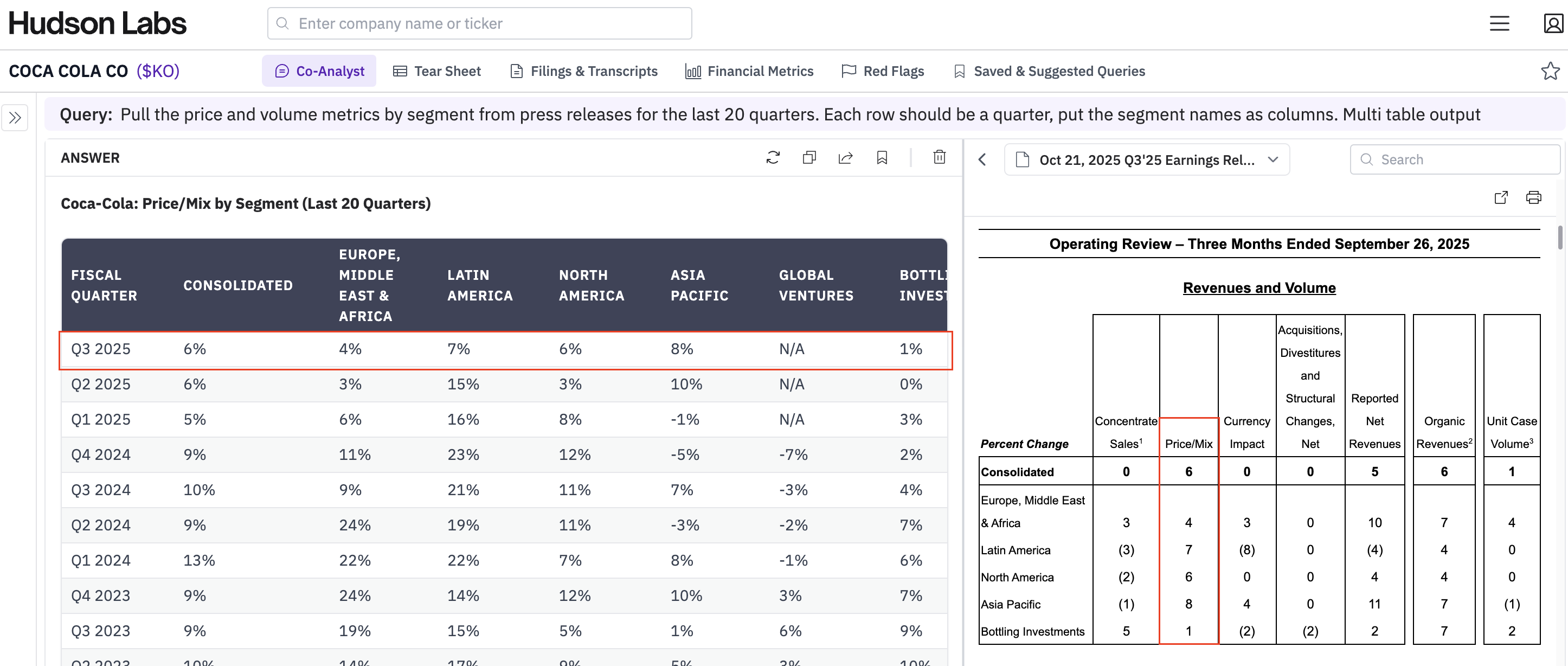Plus accounting policy changes at AMZN and GOOG
Welcome to our weekly reports featuring impactful and unusual disclosures as extracted by Hudson Labs' algorithms.
Filings from the week of January 31 - February 4.
The big names are all filing - and although they’re not high risk, they still have some interesting disclosures:
GOOG and AMZN’s think their servers will last a long time:
GOOGL increased the estimated useful life of their servers and network equipment from three to five years in 2021. The total impact of this discretionary policy change is unknown. R&D expenses were reduced by $450M but the exact impact on cost of revenues was not disclosed. GOOGL notes that the change reduced the loss/increased revenues for the Google Cloud and Google Services segments.
In Q4 2021, AMZN decided they wouldn’t be outdone, disclosing “we completed a useful life study for our servers and networking equipment and are increasing the useful lives from four years to five years for servers and from five years to six years for networking equipment in January 2022.” AMZN anticipates that this change will have a $3.1B impact on their 2022 operating income. They last increased useful lives for servers in 2020.
COVID recovery in full-swing
GOOGL reduced allowances for credit losses by $808M compared to 2020.
GM Financial increased residual value estimates for their leased vehicle portfolio. The impact will be prospective.
TSLA reduced returns reserve, increasing revenues by $365M due to lower return rates and higher resale values in 2021 (more TSLA below!)
BECTON DICKINSON & CO (BDX)
10-Q | Market cap: $79B
BDX’s stock price increased sharply this month and so did its Risk Score.
The Department of Justice “recently expanded the investigation to include several additional contracts”. The DOJ is investigating possible violations of the False Claims Act. BDX is unable to provide an estimate for the range of losses resulting from the investigation because there are "significant factual and legal issues to be resolved" [1].
BDX received an SEC subpoena one year ago, related to its AltarisTM infusion pump. The investigation is ongoing [2].
In Q1'22 BDX's revenues from COVID-19 testing dropped to $185M from $866 in the prior-year period. Top line revenue decreased from $5,315 to $4,995 period-over-period despite three acquisitions made during the quarter [3].
In December 2021, the FDA issued a letter to BDX stating that their corrective actions for issues raised during a 2020 inspection were partially adequate but “certain others were not adequate (e.g., complaint handling and corrective and preventive actions (CAPA), design verification and medical device reporting)” [4].
- "In April 2019, the Department of Justice served the Company and CareFusion with CIDs seeking information regarding certain of CareFusion’s contracts with the Department of Veteran’s Affairs for certain products, including AlarisTM and PyxisTM devices, in connection with a civil investigation of possible violations of the False Claims Act, and the government recently expanded the investigation to include several additional contracts.”..."With respect to the civil investigative demands (“CIDs”)...Company is unable to estimate a range of reasonably possible losses for the following reasons: (i) all or certain of the proceedings are in early stages; and/or (ii) there are significant factual and legal issues to be resolved."
- “In February 2021, the Company received a subpoena from the Enforcement Division of the SEC requesting information from the Company relating to, among other things, AlarisTM infusion pumps."
- "The period-over-period decline in the Life Sciences segment’s Integrated Diagnostic Solutions unit’s sales related to COVID-19 diagnostic testing on the BD VeritorTM Plus and BD MaxTM Systems reflected current-period testing revenues of $185 million, compared with sales of testing products in the prior-year period of $866 million."..."... various strategic acquisitions we have executed as part of our growth strategy, including our acquisitions of Scanwell Health, Inc, Tissuemed, Ltd., and Venclose, Inc. in the first three months of fiscal year 2022."
- "In addition, in December 2021, the FDA issued to CareFusion 303, Inc. a letter of non-compliance with respect to the Consent Decree (the “Non-Compliance Letter”) stating that, among other things, it had determined that certain of BD’s corrective actions with respect to the Form 483 Notice appeared to be adequate, some were still in progress such that adequacy could not be determined yet, and certain others were not adequate (e.g., complaint handling and corrective and preventive actions (CAPA), design verification and medical device reporting)."
SUPER MICRO COMPUTER INC (SMCI)
10-Q | Market cap: $2.0B
TLDR - SMCI settled with the SEC in 2020 and agreed to “cease and desist” committing violations of the Securities Act. SMCI's increased related party transactions create an opportunity for round tripping.
Related party purchases were made to Ablecom and Compuware. Ablecom is a company run by the SMCI CEO’s brother and ~29% owned by family members. The SMCI CEO’s spouse is also an officer and director at Ablecom [1]. SMCI had $49.4M and $50.9M in purchase orders outstanding to Ablecom and Compuware, respectively.
Related party purchases accounted for 9.4% of cost of sales this past quarter, up from 73% in prior year [2].
Compuware is both a distributor and a manufacturer for the company [3].
Ablecom sells components back to SMCI at the same price Ablecom buys them, which raises a question of how the transaction is adding value. SMCI also discloses that it is not always a sales transaction but can also be a consignment transaction [4].
- “Ablecom’s Chief Executive Officer, Steve Liang, is the brother of Charles Liang, the Company’s President, Chief Executive Officer and Chairman of the Board. Steve Liang and his family members owned approximately 28.8% of Ablecom’s stock and Charles Liang and his spouse, Sara Liu, who is also an officer and director of the Company, collectively owned approximately 10.5% of Ablecom’s capital stock as of December 31, 2021. Bill Liang, a brother of both Charles Liang and Steve Liang, is a member of the Board of Directors of Ablecom.”
- "Purchases from Ablecom, and Compuware, related parties of the Company (see Note 8, "Related Party Transactions") accounted for a combined 9.4% and 7.3% of total cost of sales for the three months ended December 31, 2021 and 2020, respectively, and a combined 9.5% and 8.2% of total cost of sales for the six months ended December 31, 2021 and 2020, respectively.”
- "Compuware is both a distributor of the Company’s products and a contract manufacturer for the Company.”
- "For the components purchased from the Company, Ablecom sells the components back to the Company at a price equal to the price at which the Company sold the components to Ablecom. The Company and Ablecom frequently review and negotiate the prices of the chassis the Company purchases from Ablecom.”...“The Company provides certain components used in the manufacturing process (such as power supplies) to Ablecom through consignment or sales transactions."
TESLA INC (TSLA)
10-K | Market cap: $1T
The SEC is back [1]! Do we care this time?
TSLA reduced their returns reserve which increased revenues by $365M. This was due to lower vehicle return rates and higher resale values in 2021 [2].
TSLA “recognized $47 million in impairment related to the in-process research and development intangible asset as we abandoned further development efforts and $15 million for the related equipment within the energy generation and storage segment.” Further details do not appear to be disclosed.
TSLA is having trouble in California with race and discrimination lawsuits [3], plus “district attorneys in certain California counties are conducting an investigation into Tesla's waste segregation practices."
TSLA “also incurred a loss of $37 million for closing operations in certain facilities.” Further details do not appear to be disclosed.
TSLA shot back at JP Morgan in January 2022, filing multiple counterclaims [4] and saying that the “adjustments made by JP Morgan were neither proper nor commercially reasonable”.
- “More recently, on November 16, 2021, the SEC issued a subpoena to us seeking information on our governance processes around compliance with the SEC settlement, as amended.”
- "Additionally, we had a $365 million net release of our sales return reserve on vehicles sold with resale value guarantees, which increased our automotive sales revenue, due to actual return rates being lower than expected and increases in resale values of our vehicles in 2021.”
- "On January 3, 2022, the California Department of Fair Employment and Housing (“DFEH”) issued Tesla a Notice of Cause Finding and Mandatory Dispute Resolution following an investigation into undisclosed allegations of race discrimination and harassment at unspecified Tesla locations."... “On October 4, 2021, in a case captioned Diaz v. Tesla, a jury in the Northern District of California returned a verdict of $136.9 million against Tesla on claims by a former contingent worker that he was subjected to race discrimination while assigned to work at Tesla's Fremont Factory from 2015-2016.”
- “On January 24, 2022, Tesla filed multiple counterclaims as part of its answer to the underlying lawsuit, asserting among other points that JP Morgan should have terminated the stock warrant agreement in 2018…”
About us: Hudson Labs extracts red flags from SEC filings based on learned associations with downside outcomes. Our institutional dashboard analyzes annual and quarterly statements,and 8-Ks for over 8,000 tickers. We process filings and render analysis in real-time. Connect with us on Twitter.
Check-out our whitepaper to learn about how unstructured data in 10-Ks is underused.








